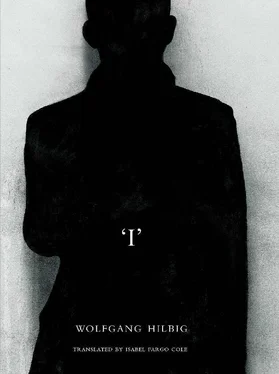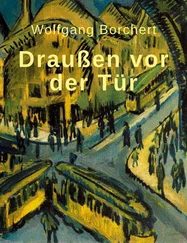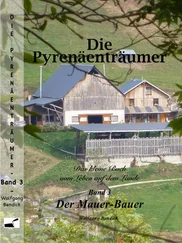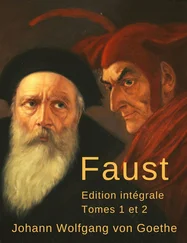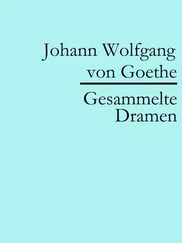As he stood down in front of his basement storage space — which wasn’t even padlocked, just shut with a wobbly latch — it too seemed unsuitable: How could someone not hit on the idea of a basement hiding place? His basement had almost nothing in it, just a scanty heap of coal briquettes, left over from last winter. W. gazed further down the basement passage, irresolute. . he had been left with the last storage space, the farthest away from the door. . and then he lived on the very top floor, the fourth or fifth, he’d never really counted — and so the other residents had reckoned the longest possible distance for him to lug his coal. . and the shortest one for the people on the ground floor, who of course had claimed the first storage spaces near the entrance. — Feuerbach had told him that the previous tenant was an old woman with no family, the great aunt of an officer who’d absconded to the West before the Wall was built. And one day the old lady had been found in her flat. . frozen to death! In the meantime it had gotten warmer again, and she was already semi-liquefied. . it was a story W. couldn’t let himself think about alone in the flat at night. . but of course it also reminded him of Frau Falbe’s story, of her husband who had vanished to the West.
A few steps onward the passage turned a corner, where a door had been removed, and there was another light switch. He turned the switch and saw another long, lit passage in front of him: he was under the next building. . he lived in No. 35, and here someone had chalked the number 33 on the wall, no doubt to guide the coal carriers. And the slatted doors of the basement cubicles bore the names of each tenant, but there were empty spaces too, ones left open, or ones in which every conceivable kind of junk had been stowed and hoarded. . he walked onward as though through an utterly different, unexpectedly fantastic world. . another bend, another passage, also lit, cubicles, gates, a little card with the tenant’s name tacked to each, already No. 31, he guessed. . and then onward, No. 29, more passages. At some point the way was cut off by a wall; he tried to picture the area: the grounds of a factory had to begin behind the wall. Turning back, he discovered a cross passage. . by the time he was past he had already forgotten whether he had taken it or kept going straight. Once, possibly having already passed his building again, he climbed up a set of basement stairs, went through several open doors and found himself in a completely unfamiliar courtyard, a narrow rectangular shaft, dizzyingly high, dark, with a tiny square of starry sky above it, four doors leading through the four sky-high walls, and he took the nearest one, over which a tiny lamp glowed, and immediately discovered another basement, another basement passage, perhaps parallel to the one he had come from, or heading at a right angle towards it, or at a right angle away from it, or past his house in no particular direction, or towards a cross passage that crossed a never-before-seen cross passage, which crossed another one, or paralleled it, or met it at an angle. . perhaps down here escape was possible? Who did he want to escape from, except his superior Feuerbach from time to time? And he resolved to get to the bottom of all this. . if he couldn’t find his way aboveground in Berlin, perhaps he could do so in this system down below. Was it a system congruent to the network of streets and rows of houses above him? That would have to be explored. . this could be his task for the next few days, at least until Feuerbach had calmed down.
He found himself here — or so it might seem with a bit of imagination — in the very bowels of the city. It was like crawling under the skirts of Berlin, that monstrous old hag, and suddenly seeing all that she hid from the world in shame. Down here the hag had concealed everything that embarrassed her. . and betrayed her true nature. Down here was all that remained of her whoredom with the changing systems. . here she’d hidden her cast-off fetishes, here the languages of her past were buried, in the bundles of old banned newspapers, for instance, Wilhelmine, nationalist, democratic, fascist, Stalinist, post-Stalinist. . down here in the dark the corrupt old paper phosphoresced like unwashed undergarments. . and down here the dead and the undead walked, amusing themselves with the remnants of their erstwhile obsessions. And here lay the city’s unhatched eggs; no one knew what might yet crawl out of them. And here the city’s excrement rotted. — After a week spent searching the passages beneath the city for a place to hide his little roll of paper, he happened upon a space that opened out in a cone shape, ending at a visibly new concrete wall. Up in the wall he discovered a still-usable light-bulb socket, and a stable wooden crate lay nearby. . This, so he thought, is a safe place to think things over. .
(Once C. had had a bad dream, he’d forgotten when and where he had dreamt it: he had lost his body. . at least it had been transformed into some sort of mass which at that moment seemed completely unacceptable . Something slimy, slickly gleaming, brown, excrementous, and he’d kept casting about for an apt expression. He hadn’t detected any smells, but they were in the words he used, the whole dream was filled with the bitter taste of foul words he felt forced to repeat and repeat, not only because he forgot them again immediately but because he had to bury all public and conformist language regimes beneath them. He had crawled down passages, or perhaps it was just one straight passage, very low, and yet he’d moved forward unimpeded. . or rather he had been moved, it was a ploughing forward, slipping, sliding along an inclined shaft — a mining term, as he recalled from earlier days — on the slope of a passage that ran deeper and deeper into the earth, a square channel about a yard or a yard and a half on each side. There was light, glittering, and the walls were slurried and indistinct, seeming to consist of a loose, slimy substance that kept sliding along with him, he was a part of this substance, brown to black, and like a chameleon he blended in with each shift in the colour of the walls, all the while gliding or being propelled along. — At first he’d been appalled by the words in his throat, then they came to seem normal to him, until finally he was intoning them rhythmically, and soon they sounded like someone pounding at a typewriter: ex-cre-ment-ex-cre-ment-ex-cre-ment. . Words such as shit, crap, crud struck him as innocuous and inapt, it was only the two old-fashioned terms excrement and faeces that expressed the full import. And in his dream he carried on with his rant and kept on moving these words even after waking: Faeces all around me. . I am excrement. . Code Name Faeces. . Code Name Excrement. . — The words slid out of him without resistance, as though they consisted of the stuff they named. — And suddenly Feuerbach had woken him with the words: It can’t be all that bad. .
It must be a dream from a complete different time, C. told himself, a completely different region, maybe a dream from around the town where I was born. . He had fallen asleep on his chair in the cafe on Frankfurter Allee, the right half of his face resting on the windowpane, fogged to the point of opacity by his fitful breath. — When you look out at the street, all’s right with the world, said Feuerbach, striking up his long-familiar recitative. And that’s all we should be doing, looking out, nothing but that, and not asking where the whole show’s headed. Just so you know!—C. followed his impulse to remain silent. — And the first lieutenant added: And where the show’s headed, that’s for us to know, and no one else. You don’t have to know, because you’re the one who keeps it running. .
Читать дальше
